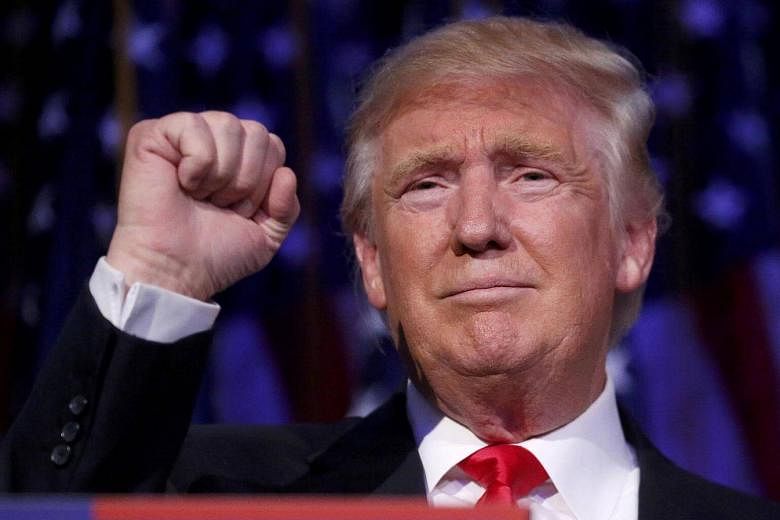The Republican Party had barely finished rejoicing in its emphatic election victory when reports of infighting began anew.
Last Friday, Mr Donald Trump rejigged his transition team, making Vice-President-elect Mike Pence the leader in place of New Jersey Governor Chris Christie. The move sparked chatter about clashes between the different factions of the party vying for prominence in the Trump universe.
Politico magazine reported that a reason for Mr Christie's ouster was that social conservatives considered the centrist Christie-types not sufficiently conservative on social issues. Another was that some of Mr Trump's allies are upset that the governor - who has deep ties with the party establishment - seems unwilling to punish Republican insiders who had been less than supportive of the Trump campaign.
The nub of the problem is tensions from fault lines old and new. Over the past few years, the party has struggled to unite its members under a single ideology.
Now it has to incorporate Trumpism and Trump voters - with ideas at odds with Republican orthodoxy - into that mix.
Cornell University professor of American politics Elizabeth Sanders said, for instance, that the fiscal conservatism and opposition to entitlements embraced by the Tea Party faction do not resonate with the millions of working-class voters who backed Mr Trump.
That group does not necessarily believe a small government that stays out of people's lives is the most important goal.
"Many Americans are hurting, and they are looking for some help from the government," she said.
Mr David Boaz of the Cato Institute, a libertarian think-tank, put it this way to The Wall Street Journal: "I don't know where conservatives can go. Right now, you have to say there is no major political party that is even rhetorically committed to small government and free enterprise."
The party establishment that has long supported free trade, takes a hawkish military stance, and emphasised the importance of immigration reform in 2012, will now also have to contend with a president who has stressed protectionism, is willing to cede some military ground to Russia and has put forward some extreme immigration proposals.
"What (House Speaker) Paul Ryan wants is very different from what Trump wants, and they are going to have to find a way to sort it out," added Prof Sanders.
There are hints of where the clashes in policy will be. While Republican congressional leaders swiftly swore to repeal Obamacare after the election, Mr Trump last Friday suggested that some parts of the law be kept.
That the party now holds the key levers of power - the presidency and both houses of Congress - might worsen the problem.
Mr Trump showed the Republican Party how to win an election. He reached out to voters in a way no one else did. The party, whether it agrees with him or not, must find a way to deliver on his promises or risk alienating its new-found base.

